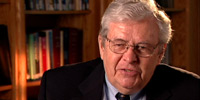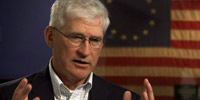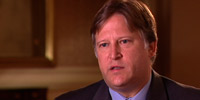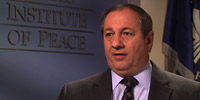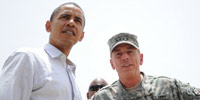Tag: ethics
As major combat operations come to an end and the US completes a troop drawdown in Iraq, revisit interviews with ethicists, philosophers, scholars, and religious leaders about just war and the moral issues raised by Iraq. More
“We can open up the question of financial incentives” for organ donations “without worrying about undue coercive pressures.” More
In a new book, this historian and professor of international relations writes that America’s long military campaigns in Afghanistan and Iraq “demonstrated the folly of imagining that war could be mastered” and demolished “Washington’s pretensions to moral superiority.” More
“Every time you eat, you give expression to what you think the world ought to be,” says Norman Wirzba, a professor of theology, ecology, and rural life at Duke Divinity School. More
Paul Wolpe, director of Emory University’s Center for Ethics, says ethics should precede our economic and political judgments and our response to events like the Gulf oil spill. More
“The issue here is not BP’s behavior, it’s not the Obama administration’s behavior. It’s our behavior. That is where the deepest change has to happen.” More
LUCKY SEVERSON, correspondent: A bittersweet moment for members of the Havasupai tribe, retrieving blood samples they gave to Arizona State University (ASU) 20 years ago. CARLETTA TILOUSI: We felt very strongly that blood samples are sacred to all Native … More
Watch University of Notre Dame peace studies and political science professor George Lopez, currently a senior fellow at the US Institute of Peace, comment on the consequences of the Supreme Court’s recent decision upholding a federal law that makes it a crime to provide “material support” to foreign terrorist organizations, even if the help takes the form of training for peacefully resolving conflicts. More
Will General Petraeus enlist the aid of anthropologists and other social scientists to advise on religion, ethics and local cultural practices in Iraq? More
“The concern I have with a lot of families is that when they adopt they may not always see it as a permanency nowadays, because there’s a lot of availability to disrupt adoptions,” says Dr. Ronald Federici, a neuropsychologist. More


